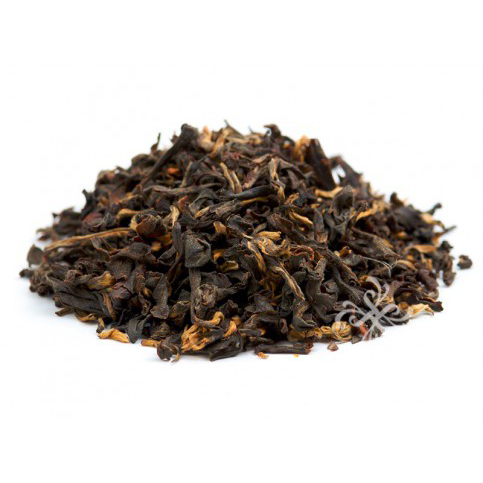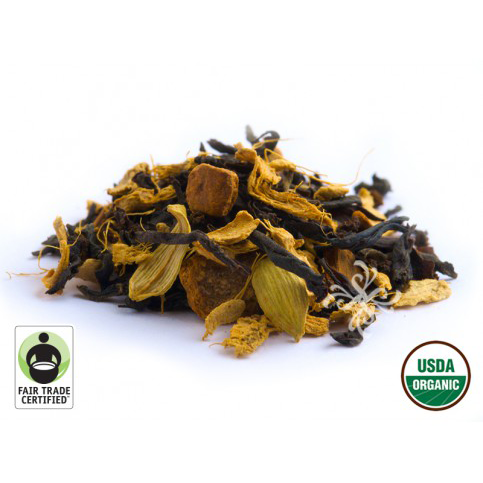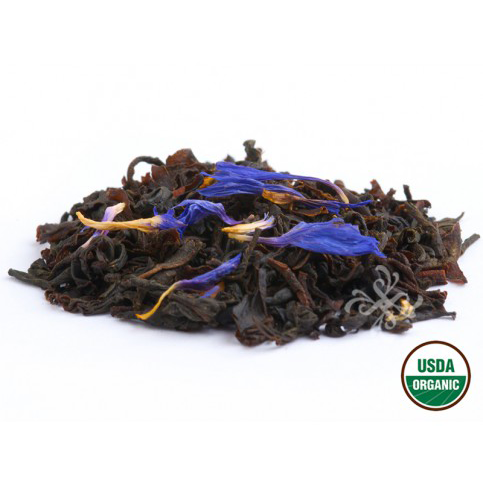Black/Red Teas:
Black tea
Black teas are allowed to oxidize much more thoroughly than oolong teas or green teas. Once the tea is oxidized it's dried to stop the process of decomposition. The flavour is usually more intense with these oxidized teas, and they can handle longer brewing times and higher heat.
Western culture refers to this tea as "black tea" due to the dark colour of the leaves after oxidization, however, in Asian cultures it's more commonly referred to "red tea" after the colour of the infusion.
This tea was created, as a way to transport the tea longer distances, while maintaining its aroma and flavour. Producers discovered that by fermenting (oxidizing) the leaves first, and often compressing them into "cakes", the tea would last much longer, and thus were suitable to transport long distances.
India is the worlds leading producer of black tea. Other top producers are Sri Lanka, as well as various African, and South American countries.
Brewing Black/Red Teas:
To brew, a higher heat is recommended, and boiling water is fine. Steep for about 2-5 minutes depending on desired flavour. Like green tea, a longer infusion will create a more bitter, astringent tea, but not to the same extent as with green or white teas.
Temperature:
90-100 degrees Celsius
Timing:
2-5 minutes
Types of Black Tea
+ Assam
Indian. Commonly used in blends, and a lot of it is considered low grade and used in tea bags, however there exists some high quality Assam tea as well.
+ Ceylon Black Tea
Sri Lanka. Generally produces strong, bold, rich flavors.
+ Darjeeling Black Tea
Indian. Commonly referred to as the "champagne" of tea. Available in multiple flushes, whith the first flush holding the highest value.
+ Earl Grey
Flavored black tea. Uses bergamont essential oils to flavour the tea. One of the most popular black teas in the western world.
+ Keemun Black tea
Chinese.
+ Lapsang Souchong
Chinese. Large, dark, rolled leaves. Considerably smoky qualities, due to different drying technique involving smoking the leaves over a fire (usually pine wood). This imparts characteristics from the burnt wood including terpenes, and longifolene which are not present in other teas. Souchong refers to the fourth and fifth leaves of the plant, meaning they are picked further away from the highly prized buds of the plant. Smoking these leaves adds flavor to a generally unvalued tea.
+ Masala Chai
Indian. Masala chai is a combination of black tea, with Indian spices. Although the individual spices can vary greatly, as well as the initial source of black tea, the majority of masala chai will contain ginger, cardamom, milk, and sugar.
+ Yunnan Black Tea
Chinese. Grown in the Yunnan province.




